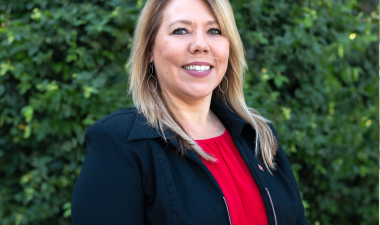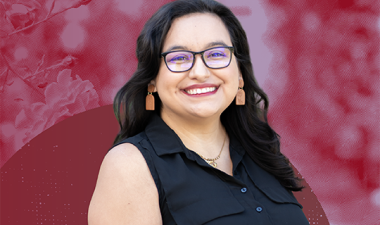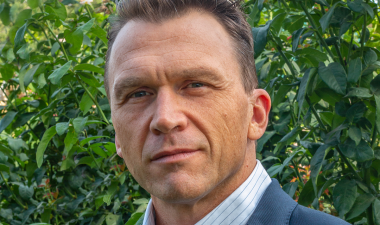With universities and colleges seeking to bolster their counseling staff to meet the increased demand for help after two years of a global pandemic, Stanislaus State found help from one of its own.
Cynthia Borges-O'Dell, who had been treating the incarcerated at the San Joaquin County Jail as chief mental health clinician for the county’s Correctional Health Care, has returned to her alma mater as the director of Psychological Counseling Services.
“This really feels very full circle,” said Borges-O'Dell, who graduated from Stan State with bachelor's degrees in psychology and child development in 1988. “If it wasn’t for my coming here as a student, I wouldn’t be where I am now. What was so appealing to me was being able to give back to this academic institution that gave me so much.”
She’s wasting no time fulfilling that promise.
“When we’ve had students exiting our services due to graduation, there’s a need to thoughtfully plan their exit and provide them the resources that are available to them for continued success,” Borges-O'Dell said. “There’s been some thought of creating a specialized position, such as a clinical case manager, who could help students navigate services after graduation.”
She has other ideas and potential changes she’d like to enact, which include changing the name of the department to Counseling and Psychological Services (CAPS).
“Cyndee and her team are building a vision for wellbeing and resilience that will transform how we provide services for a new generation of students who the pandemic has impacted,” said Dean of Students Heather Dunn Carlton.
Throughout her career, Borges-O'Dell has sought innovative ways to serve clients, most recently by starting a peer mentoring program at the San Joaquin County Jail, which helped decrease aggressive incidents at the facility.
Her clients represent a vast range of the population.
After earning a master’s degree in counseling from the University of San Francisco, she launched her career in her hometown of Modesto, working with youth in group homes before spending 13 years at Stanislaus Recovery and Behavioral Health as a therapist working with social workers and traumatized children.
After a brief stint with Kaiser Permanente, she moved to the position at the San Joaquin County Jail, where she spent nearly a dozen years.
All those experiences prepared her to serve college students.
“One common thread is adjustment, the challenges of that, and the trauma,” Borges-O'Dell said. “I think many individuals have been challenged at some time in their life to manage anxiety and/or depression or have been exposed to some type of trauma. Feeling some type of anxiety or sadness can be normal but not if it creates impairment in one’s ability to function.”
That’s just one example of what Borges-O'Dell said is similar from one institution or environment to the next. Another?
“I don’t think anybody goes without needing additional support from time to time,” Borges-O'Dell said.
The need is greater now because of two years of confronting COVID-19.
“What our counselors have observed, is that for individuals who might already be challenged with some type of depression or anxiety, it intensified because of the fear and the unknown,” Borges-O'Dell said. “There was so much at the beginning of this we didn’t know. And then it was the death and the loss and grief if you knew somebody or associated with somebody who got sick. What would that mean? I think for those who already suffered from some type of anxiety or depression, it became more complex.
“For those who never experienced any kind of anxiety or depression on a level of impairment, we started to see some of that because of what the pandemic brought on. We went into isolation, and some of the coping mechanisms we have were taken away. It impacted people’s emotional health even more.”
Supporting counselors as they work to help students regain control of their post-pandemic lives and taking on emergency clients herself, is a job Borges-O'Dell dreamed about.
An older brother, retired from law enforcement, used to tease her when she was young about being an idealist who wanted to “save the world.” He even encouraged her to pursue psychology after she’d tried several disciplines at Modesto Junior College as a student.
She arrived at Stan State as a first-generation transfer student and still recalls with clarity the marvelous faculty who guided her through her studies.
She is thrilled to return to Stan State, a place she considers a gem, and does so with a realistic outlook.
“I may not be able to save the world, but I can at least impact a corner, a street, a neighborhood,” she said. “Through that, it spreads. I think I realized that’s how we work on saving the world. We do what we can within our abilities and that helps others.
“Nothing is more rewarding in the profession than helping somebody become a healthier person so as the healthier person they want to be, they can accomplish goals they set for themselves."


